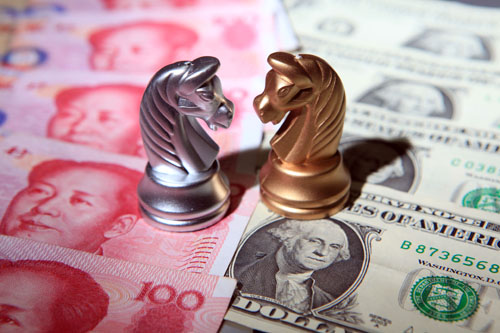In today's podcast, PBOC official Yi Gang discusses the yuan's performance so far this year.
在今天的博客中,中國人民銀行官員易綱就目前人民幣走勢談了自己的看法。

The performance of the yuan has been the second strongest among all major currencies this year, Yi Gang, adeputy governor of the central bank, said recently at a forum.
近期,中央銀行副總裁易綱在一次論壇中稱,今年人民幣的走勢趨好,排在了第二的位置。
He said the Chinese currency has performed weaker than only the U.S. dollar this year, which has appreciated by more than 10 percent against the euro and more than 11 percent against the Japanese yen. Meanwhile, its exchange rate against the yuan strengthened by only about 2 percent, meaning that the yuan has appreciated against the euro and the yen, he said.
他說人民幣的走勢紙只比美元稍差,排在第二位,比起歐元,人民幣增長了10%,比日元增長了11%。與此同時,人民幣兌換率也增長了2%,這就意味著人民幣兌換歐元和日元都有所增長。
Yi also said the yuan's exchange rate system has become more flexible, which is important for the country to reach equilibrium in its balance of international payments. According to the regulator's data, in 2007,the country's current account surplus accounted for about 10 percent of the national GDP that year. In 2013, the ratio has fallen to around 2 percent.
易還說人民幣的兌換率變得更加靈活,這對國際支付中的平衡非常重要。根據調準者的數據,2007年,國家活期存款占據了國家國民生產總值的10%。2013年,這一比率降低到了2%。
This year, he said, China has still exported far more commodities than it imported, but its service trade in the recent years has posted deficits. The two would cancel out each other and result in a small trade surplus this year. Yi also argued that the Chinese capital market is appealing to international investors. "There is every reason to believe that the yuan's exchange rate will remain relatively stable on a reasonable equilibrium level," he said.
他說今年,中國的出口量依然大于進口量,但是近幾年在服務業卻面臨著赤字的風險。這兩項將會相互抵消,其結果是今年的小型貿易順差。易還說中國的資本市場正在吸引國際投資者。他說:“我們有理由相信人民幣的兌換率將在平衡的水平上繼續穩定下去。”
譯文屬可可英語原創,未經允許,不得轉載。











